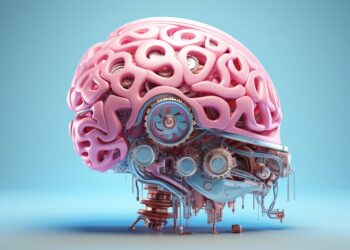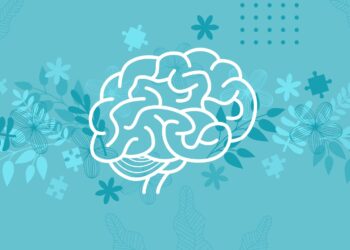Mental and emotional health might sound like they’re best friends at a party, but they actually play different roles in the grand scheme of well-being. Think of mental health as the brain’s operating system, managing thoughts, processes, and decisions. Emotional health, on the other hand, is like the playlist that sets the mood, guiding how one feels and reacts to life’s ups and downs.
What is The Difference Between Mental And Emotional Health
Mental health encompasses cognitive processes such as thoughts, decision-making, and problem-solving. It impacts how individuals perceive the world and maintain their daily routines. Emotional health, on the other hand, refers to the ability to manage feelings and respond to life’s challenges. It directly influences relationships and overall well-being.
Mental health includes conditions like anxiety and depression that affect cognitive functions. These illnesses alter thoughts and behaviors, affecting one’s ability to function effectively. Emotional health, however, involves understanding and coping with emotions. It fosters resilience, enabling individuals to navigate stress and maintain healthy relationships.
Both aspects are interconnected. Mental health problems invariably influence emotional stability. For instance, persistent negative thoughts can lead to emotional distress. Conversely, strong emotional health can enhance mental clarity. Strategies like mindfulness and therapy strengthen both mental and emotional health.
Factors contributing to mental health include genetics, environment, and lifestyle choices. Stressful life events can trigger mental health issues. Emotional health is shaped by personal experiences and social support. Healthy coping mechanisms, such as expressing emotions, improve emotional well-being.
Recognizing the differences between mental and emotional health is essential. It aids in identifying appropriate treatment options. Understanding these distinctions leads to a comprehensive approach to well-being. Prioritizing both aspects fosters a balanced lifestyle and enhances quality of life.
Understanding Mental Health

Mental health encompasses various aspects of cognitive function and overall well-being. It significantly influences how individuals think, feel, and act in daily life.
Definition of Mental Health
Mental health refers to cognitive and psychological functioning. It includes an individual’s emotional, psychological, and social well-being. Healthy mental functioning affects how one manages stress, communicates with others, and handles life choices. Furthermore, mental health can encompass conditions such as anxiety, depression, and bipolar disorder, which alter thoughts and behaviors. Understanding mental health helps in recognizing symptoms and seeking appropriate interventions.
Key Components of Mental Health
Key components include cognitive processes, emotional regulation, and behavioral responses. Cognitive processes involve thought patterns that shape perceptions of reality. Emotional regulation refers to managing feelings in response to experiences. Behavioral responses showcase how individuals act based on their thoughts and emotions. Resilience stands out as a vital element, allowing individuals to adapt positively to stress and adversity. Additionally, social connections enhance mental health by providing support, making interaction with relationships essential. Prioritizing these components fosters overall mental well-being and improves quality of life.
Understanding Emotional Health
Emotional health refers to the ability to manage and express feelings effectively. This concept includes awareness of one’s emotions and the capacity to navigate life’s ups and downs.
Definition of Emotional Health
Emotional health encompasses the understanding and regulation of feelings. It involves recognizing emotions and assessing their impact on daily life. Individuals with strong emotional health can cope with stress and adapt to changes. Healthy emotional responses contribute to building meaningful relationships. Recognizing personal feelings and expressing them constructively fosters emotional stability.
Key Components of Emotional Health
Several key components define emotional health. Self-awareness plays a critical role in understanding feelings and reactions. Emotional regulation allows individuals to manage responses to challenging situations. Resilience equips individuals to bounce back from adversity. Effective communication strengthens relationships and promotes emotional well-being. Support systems, including friends and family, provide necessary encouragement. Prioritizing these components leads to improved emotional health and overall quality of life.
Comparison of Mental and Emotional Health
Mental and emotional health share common ground, both contributing to overall well-being. Each aspect plays a significant role in how individuals respond to daily life and cope with challenges. They intersect in areas like stress management, where mental clarity aids emotional regulation. Social support serves both realms, enhancing resilience and encouraging healthy relationships. Moreover, both can benefit from interventions like therapy and mindfulness practices.
Differences arise in their focus and function. Mental health emphasizes cognitive processes, including thoughts, decision-making, and problem-solving. People often experience conditions like anxiety or depression that disrupt these processes, affecting perception and routine. Emotional health, on the other hand, hones in on the management and expression of feelings. While mental health issues can trigger emotional instability, emotional resilience helps mitigate stress. Understanding these distinctions is essential for choosing appropriate strategies for improvement in each area.
Importance of Distinguishing Between the Two
Recognizing the differences between mental and emotional health plays a vital role in overall well-being. Mental health impacts cognitive functions like problem-solving and decision-making, while emotional health focuses on the management of feelings. Identifying these aspects allows individuals to target interventions that effectively address specific issues.
Awareness of these distinctions aids in effective treatment. For instance, someone experiencing anxiety may need strategies focused on cognitive restructuring, whereas an individual facing emotional challenges may benefit from developing coping skills. Personalized approaches enhance the likelihood of improvement.
Understanding the interplay between mental and emotional health is essential, too. Mental health problems often lead to emotional instability, influencing interpersonal relationships and daily functioning. Conversely, strong emotional health backs resilience against stress and supports mental clarity.
Factors like genetics, environment, and lifestyle choices shape mental health. Meanwhile, emotional health is significantly influenced by personal experiences and social connections. Prioritizing these factors allows individuals to maintain balance, promoting a healthier lifestyle.
Therapeutic techniques can address both areas effectively. Mindfulness practices often improve mental focus while enhancing emotional regulation. Therapy that incorporates both cognitive and emotional strategies provides comprehensive support, yielding better outcomes.
Fostering both mental and emotional health leads to a richer quality of life. Healthy relationships, effective communication, and adaptive coping mechanisms derive from balanced mental and emotional well-being. Making time for self-awareness and growth in both areas ensures holistic health benefits.
Conclusion
Understanding the difference between mental and emotional health is vital for overall well-being. Each aspect plays a unique role in shaping how individuals navigate life’s challenges and maintain relationships. By recognizing the distinct yet interconnected nature of mental and emotional health, individuals can better identify their needs and seek appropriate support.
Strategies that enhance both areas can lead to improved resilience and coping skills. Emphasizing self-awareness and effective communication fosters healthier emotional responses while addressing cognitive processes strengthens mental clarity. Prioritizing both mental and emotional health ultimately paves the way for a more fulfilling and balanced life.














Discussion about this post